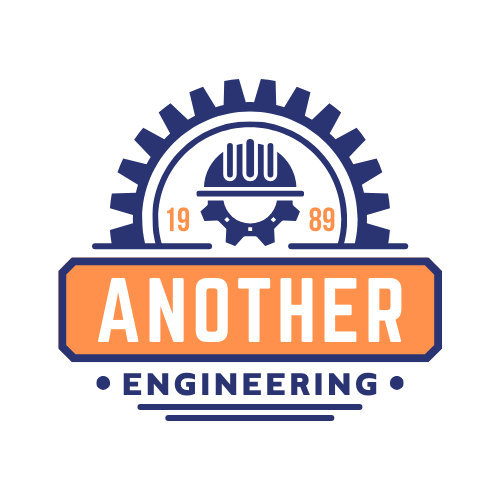In the world of chemical engineering and process simulation, Aspen HYSYS and Aspen Plus are two prominent software tools that play a crucial role in designing and optimizing various processes that’s the reason understanding of Difference Between Aspen HYSYS and Aspen Plus is important . Both are developed by Aspen Technology, and while they serve similar purposes, they have distinct features and applications. In this article, we will explore the key differences between Aspen HYSYS and Aspen Plus to help you understand when and how to use each of them effectively. for more information about aspen plus click here

Table of Contents
1. Introduction to Aspen HYSYS and Aspen Plus
Aspen HYSYS and Aspen Plus are both simulation software packages developed by Aspen Technology, aimed at aiding engineers in the design, analysis, and optimization of chemical processes. These tools are widely used in industries such as oil and gas, petrochemicals, pharmaceuticals, and more. For more information about aspen hysys click here

2. Purpose and Primary Functionality
Aspen HYSYS: Aspen HYSYS primarily focuses on steady-state process simulation. It excels in analyzing and optimizing existing processes, conducting heat and material balances, and simulating various unit operations.
Aspen Plus: Aspen Plus, on the other hand, specializes in dynamic process simulation and is well-suited for designing new processes. It provides detailed insights into transient behavior, making it valuable for industries where time-dependent processes are critical.
3. User Interface and Ease of Use
Aspen HYSYS boasts a user-friendly interface, making it accessible to engineers with varying levels of experience. Its intuitive design and drag-and-drop features simplify the modeling process.
Aspen Plus, while powerful, has a steeper learning curve due to its complex dynamic simulation capabilities. It is often favored by experts in the field who require in-depth process analysis.
4. Fluid Property Databases
Both software tools offer extensive libraries of fluid property databases. Aspen HYSYS tends to have a wider selection, making it suitable for a broader range of applications.
5. Process Modeling Capabilities
Aspen HYSYS excels in simulating steady-state processes, making it the go-to choice for industries that require stability in their operations. It allows engineers to study the behavior of processes under constant conditions.
Aspen Plus, with its dynamic modeling capabilities, is better equipped for industries where understanding transient states and unsteady operations is crucial.
6. Thermochemical Modeling (Difference Between Aspen HYSYS and Aspen Plus)
Aspen Plus offers advanced thermodynamics modeling options, making it the preferred choice for industries dealing with complex chemical reactions and phase equilibria.
Aspen HYSYS also supports thermochemical modeling but is often selected for simpler processes that do not require such advanced features.
7. Batch and Continuous Processes
Aspen Plus stands out in its ability to model batch processes effectively. This is particularly useful in industries like pharmaceuticals and specialty chemicals, where batch production is common.
Aspen HYSYS primarily focuses on continuous processes and may not be as versatile when it comes to batch simulations.
8. Integration with Other Software
Both software packages allow integration with various third-party tools and databases, enhancing their functionality and extending their capabilities.
9. Cost Considerations
The cost of using Aspen HYSYS and Aspen Plus can vary significantly depending on the specific modules and features required. Aspen Plus, with its advanced capabilities, tends to be the more expensive option.
10. Industries and Applications
Aspen HYSYS finds its application in industries such as oil and gas, refining, and chemical manufacturing, where steady-state simulations are prevalent.
Aspen Plus is often chosen by industries like pharmaceuticals, food and beverage, and specialty chemicals that require dynamic modeling and transient analysis.
11. Training and Learning Curve
Due to its simpler interface and focus on steady-state processes, Aspen HYSYS is generally easier to learn for beginners. Aspen Plus demands a more extensive training period to harness its full potential.
12. Support and Updates
Both software tools receive regular updates and technical support from Aspen Technology, ensuring that users have access to the latest features and bug fixes.
13. Advantages of Using Aspen HYSYS
- User-friendly interface.
- Ideal for steady-state simulations.
- Suitable for various industries.
- Lower learning curve for beginners.
14. Advantages of Using Aspen Plus
- Dynamic process simulation capabilities.
- Excellent for industries with batch processes.
- Advanced thermodynamics modeling.
- Ideal for experts in the field.
15. Conclusion
In conclusion, Aspen HYSYS and Aspen Plus are powerful tools with distinct capabilities. Your choice between the two should depend on the specific needs of your industry and the complexity of the processes you work with. While Aspen HYSYS excels in steady-state simulations and is beginner-friendly, Aspen Plus shines in dynamic simulations and is favored by experts in fields like pharmaceuticals and specialty chemicals.

